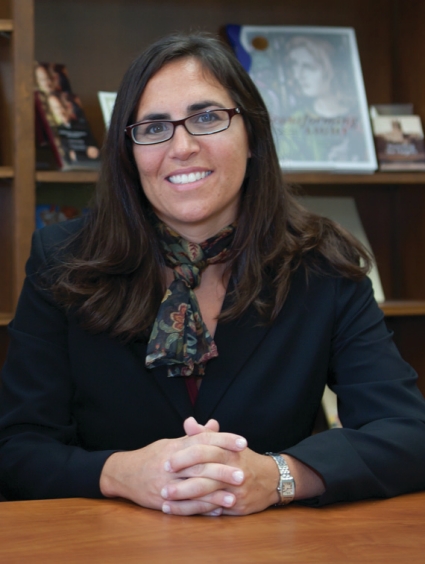
By
Young adults who age out of foster care face a double whammy, says Graduate School of Social Work Associate Professor Stephanie Berzin.
“They not only lose the support and services that come with foster care,” she explains, “but they also lose housing. And according to available research, access to housing is one of the strongest indicators of whether youths in that age range — 18 to 25 years old — will thrive. So the challenge confronting these young people, already coping with transitions in leaving foster care, is even greater.”
Berzin, who chairs GSSW’s Children, Youth, and Families concentration, co-organized a forum on campus earlier this month to discuss the issue of housing for such vulnerable young adults. Sponsored by GSSW and the Massachusetts Task Force on Youth Aging Out of Department of Child & Family Services Care — of which Berzin is a member — the forum featured agencies and housing programs from across the state with a record of success in serving this at-risk population.
More than 100 representatives from the practice, academic and policy areas of the human and social services fields attended the forum, which included a roundtable discussion and Q&A session led by Berzin.
Among the models spotlighted at the forum were The Children’s Study Home’s Falmouth-based Young Adult Independent Living (YAIL) residential program; the SHINE program of Springfield’s Gandara Center; and Roxbury Village, launched by The Home for Little Wanderers about a year ago. All provide transitional living opportunities and support for young adults, along with access to educational, vocational, counseling and other services, while helping the residents cultivate necessary skills, abilities and self-sufficiency for adulthood.
“These are fairly new programs, most coming within the past five years,” says Berzin. “One of the challenges facing these and other programs is sustainability, because at present there is not a strong mechanism for long-term support. This points up the need for public and private partnerships that will enable programs to couple housing and services for the several hundred young adults aging out of foster care.”
Berzin said she and other forum organizers viewed the event as giving greater visibility to the plight of vulnerable young adults across the state — “It’s not just a ‘Boston problem,’” she notes.
The other hoped-for outcome, Berzin says, is that the examples of successful housing programs will resonate among those in attendance at the forum, and lead to discussion and activity among other agencies and professionals with a focus on broadening such efforts.
“This is something the task force will keep an eye on,” she notes. “Ideally, as more agencies and programs look to address housing for vulnerable young adults, there also is an opportunity to examine the issue from a policy standpoint, and to develop a set of ‘best practices.’”
The forum was another in a series of collaborations between GSSW and The Home for Little Wanderers, which co-chairs the task force along with Cambridge Family & Children’s Service. Home for Little Wanderers Vice President for Program Operations Peter Evers and Cambridge Family & Children's Service Executive Director Maria Z. Mossaides both gave welcoming remarks at the event.
“It was a wonderful experience to work with The Home for Little Wanderers,” says Berzin. “We’ve collaborated in areas such as co-teaching, grants and research projects, so providing a venue in which to talk about serving the vulnerable young adult population was another example of how valuable this partnership is.”



